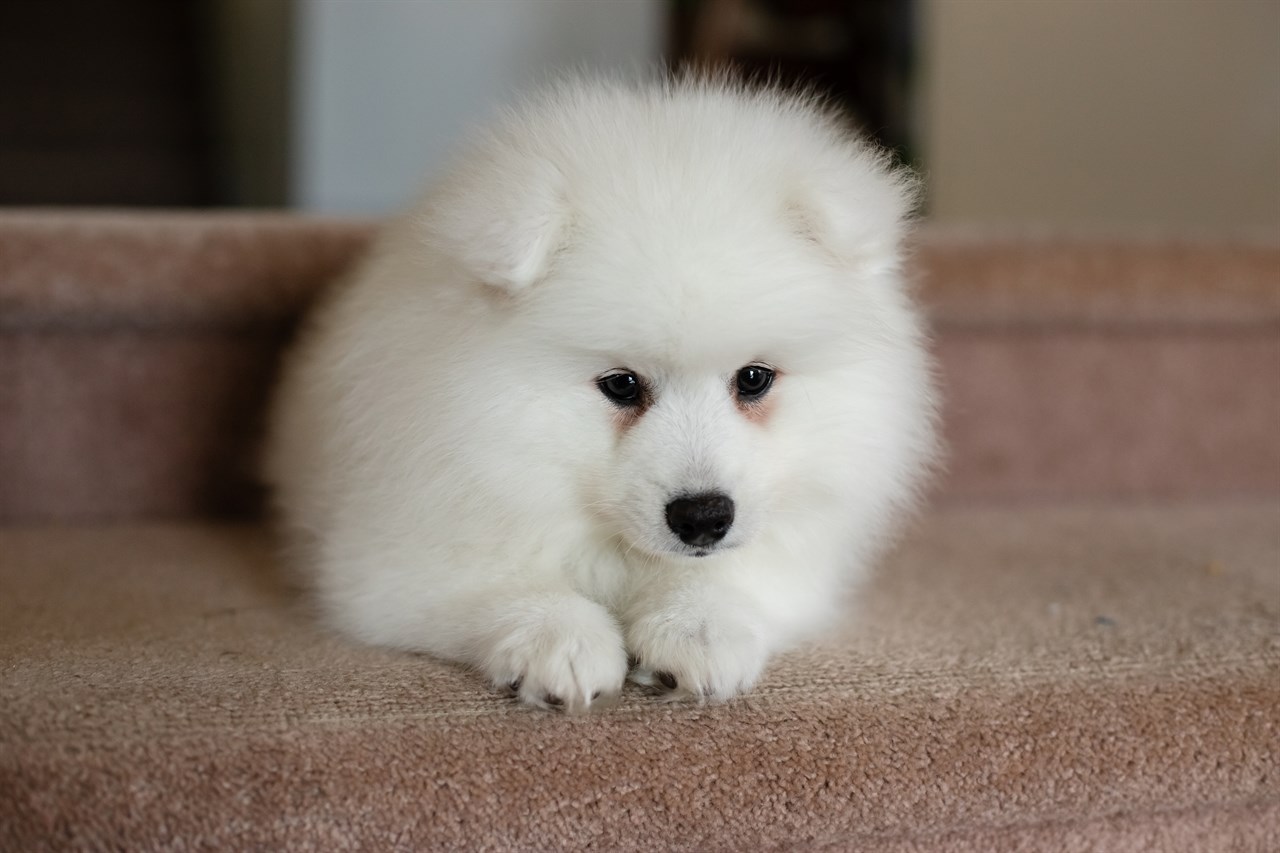Feeding Habits and Food Requirements of the Japanese Spitz

Proper nutrition is essential to the health and well-being of your Japanese Spitz. Understanding their feeding habits and food requirements will help ensure they receive the right diet for their specific needs.
Age-Appropriate Diet
Japanese Spitz puppies, adult dogs, and seniors have different nutritional requirements. It's crucial to choose a high-quality dog food that is specifically formulated for their life stage. Puppy food supports growth, while adult food maintains their health, and senior food addresses the needs of ageing dogs.
Portion Control
Overfeeding can lead to obesity, which can have adverse effects on your Japanese Spitz's health. Follow the feeding guidelines provided on the dog food packaging, but remember that individual needs can vary based on activity level and metabolism. Consult with your veterinarian to determine the appropriate portion size for your dog.
Quality Dog Food
Invest in a reputable dog food brand that lists meat or a meat meal (e.g., chicken meal) as the primary ingredient. Avoid foods with excessive fillers, artificial additives, or low-quality ingredients. If you're unsure about the best food for your Japanese Spitz, consult your veterinarian for recommendations.
Meal Schedule
Establish a regular feeding schedule for your Japanese Spitz. Most dogs do well with two meals a day, but some may prefer smaller, more frequent meals. Consistency in feeding times helps regulate their digestion and bathroom habits.
Fresh Water
Always provide access to fresh, clean water. Proper hydration is essential for your Japanese Spitz's overall health.
Avoid Table Scraps
While it can be tempting to share human food with your dog, it's generally not recommended. Some human foods can be harmful to dogs, and feeding table scraps can lead to weight gain and digestive issues. Stick to a balanced dog food diet.
Food Allergies
Japanese Spitzes, like any breed, can develop food allergies or sensitivities. If you notice signs of allergies, such as skin problems or gastrointestinal issues, consult with your veterinarian to identify potential allergens and adjust their diet accordingly.
Monitoring Weight
Regularly monitor your Japanese Spitz's weight and body condition. Maintaining a healthy weight is essential to their overall well-being. Adjust their portion sizes as needed to prevent obesity or excessive thinness.
Are Japanese Spitz picky eaters?
Japanese Spitzes, like many dogs, can have individual preferences when it comes to food. While they are not necessarily known for being picky eaters, some may develop preferences for certain flavours or textures. It's important to find a high-quality dog food that meets their nutritional needs and consult with your veterinarian if you have concerns about their eating habits. If necessary, your vet can recommend strategies to encourage your Japanese Spitz to eat a balanced diet.
Japanese Spitz puppies for sale
- Find Japanese Spitz puppies for sale in ACT
- Find Japanese Spitz puppies for sale in NSW
- Find Japanese Spitz puppies for sale in NT
- Find Japanese Spitz puppies for sale in QLD
- Find Japanese Spitz puppies for sale in SA
- Find Japanese Spitz puppies for sale in TAS
- Find Japanese Spitz puppies for sale in VIC
- Find Japanese Spitz puppies for sale in WA